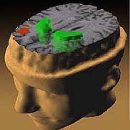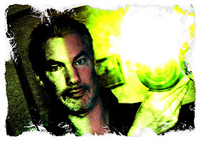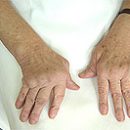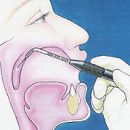Treatment of any disease will be most successful if this disease is correct and at an early stage is diagnosed. Schizophrenia is no exception. Only on time to recognize it is much more complicated than another disease. And very often you have to do it not doctors, but a close patient. How to see this spiritual ailment?
Content
Difficulties of schizophrenia diagnosis
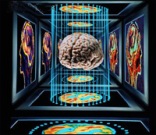
Currently, the identification (diagnosis) of schizophrenia represents serious difficulties. From the beginning of the disease until the diagnosis is usually held, which is significantly difficult to treat.
In the XXI century, psychiatrists began to concentrate their efforts on the prevention and early methods of diagnosing schizophrenia, allowing to begin treatment of the disease as early as possible and prevent its development.
In the III millennium, scientists have learned to model the patient's brain on a computer in detail, and even the work of individual cells (neurons) is reconstructed. This made it possible to close as much as possible to the knowledge of the mechanism of the occurrence and development of schizophrenia, and, accordingly, to more efficient and safe treatment, as a result of selective impact on damaged cells and processes in the central nervous system.
Diagnosis «schizophrenia»: not to be confused with reactive psychosis
Schizophrenia is independently quite difficult to recognize, as it should be limited from many mental diseases. For example, from reactive psychosis arising from any psychotrauming situation when the main symptoms reflect the features and nature of the mental injury. Reactive psychosis, unlike schizophrenia, is usually successfully cured.
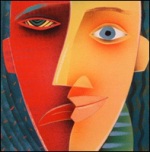
In the early stages of schizophrenia, the symptoms of depression are widespread. The depression pattern can be very distinct and long, and maybe a masked, implicit, signs of which are noticeable only to the view of a specialist. Quite often, depression is preceded by the offensive of Brad and Hallucinations. In such cases, early diagnosis of schizophrenia is very important, since after the delusional states become constant and stable, the disease passes into a different form, which is more difficult to treat.
At the beginning of the disease, the patient, as a rule, experiences many diverse and rapidly alternating emotions: weak or highly pronounced experiences associated with the change in the perception of the outside world; Euphoria (increased mood, «Peaceful well-being», What the symptom of schizophrenia is found as often as depression, but more often does not fall into the general clinical picture of symptoms, since it quickly disappears under pressure from changing the circumstances of the external world and intensive attempts to adapt to changed conditions.
In the course of the development of schizophrenia, a patient has many unmotivated emotional experiences: a sense of guilt, internal caustible fear, anxiety. Let us list some early signs of schizophrenia, which is important not to take into account, but in the complex:
- the deliberation of a special impersonabilities, the absurdity of the content with an obvious inconsistency of behavior of the subject of delusional ideas (nonsense of prosecution, greatness);
- hallucinations, most often auditory («I hear voices…», «Some voices talk to me…» and T.D.);
- Symptoms of openness;
- Influes, cliffs of thoughts, other people's thoughts, a symptom of unwinding memories;
- mania and depression;
- any negros-like and psychopath-like violations.
Modern diagnostic methods make it possible to identify the form of the disease, qualify the features of brain lesions, assess the state of the nervous system, diagnose possible hormonal changes and many other changes, discontinuity «in full view», - which will allow to assign really effective and safe treatment.


